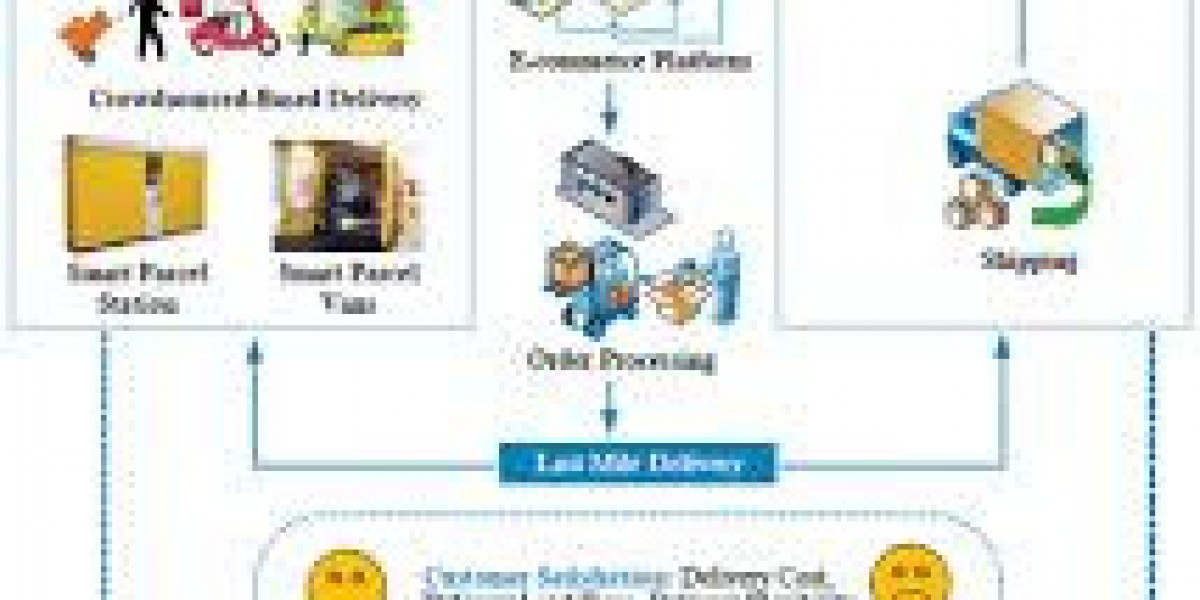In the fast-paced world of retail and e-commerce, the competition is fierce, and customer expectations are higher than ever. One of the most critical aspects of ensuring customer satisfaction is efficient last-mile delivery. Last-mile delivery refers to the final leg of the shipping journey, where goods are delivered from a transportation hub to the customer’s doorstep. This stage is often the most expensive and complex part of the entire supply chain. With the rise of e-commerce and the growing demand for fast, reliable delivery, fleet solutions have become indispensable for businesses aiming to meet these expectations while staying cost-effective.
In this blog, we’ll explore the role of fleet solutions in last-mile delivery and how they help retail and e-commerce businesses optimize their delivery operations, improve customer satisfaction, and enhance overall efficiency.
1. Streamlining Delivery Operations
Fleet solutions have revolutionized last-mile delivery by providing businesses with the tools they need to track, manage, and optimize their fleets in real-time. With fleet solutions, retail and e-commerce companies can manage their entire delivery network, from large trucks to smaller vans and even bikes for urban areas. Fleet managers can track vehicles in real-time using GPS, enabling them to monitor traffic conditions, manage routes, and adjust schedules on the fly.
By leveraging fleet solutions, businesses can ensure that deliveries are made on time and in the most efficient manner possible. For example, fleet management software can suggest the best routes based on traffic patterns and real-time data, helping drivers avoid congested areas, road closures, or accidents. This level of optimization not only speeds up deliveries but also reduces fuel consumption and lowers operational costs.
2. Cost Reduction and Efficiency
Last-mile delivery is notoriously expensive, often accounting for a significant portion of logistics costs. Fleet solutions help retail and e-commerce businesses reduce these costs by optimizing delivery routes, improving vehicle utilization, and enhancing operational efficiency. By analyzing historical data, fleet solutions can identify inefficiencies and suggest ways to improve delivery performance.
For example, fleet management software can highlight patterns of excessive fuel consumption or identify underutilized vehicles. This enables businesses to adjust their operations accordingly, whether by consolidating deliveries or optimizing vehicle fleets. Fleet solutions can also help businesses better predict delivery times, reducing the number of failed delivery attempts and the associated costs of reattempting deliveries.
3. Enhancing Customer Experience
In today’s highly competitive market, customers expect fast, reliable, and accurate delivery services. Fleet solutions play a crucial role in ensuring that customer expectations are met. With real-time tracking, businesses can provide customers with accurate delivery windows, send them updates, and even allow them to track their orders live.
Additionally, fleet solutions enable e-commerce businesses to offer more flexible delivery options. For example, customers can choose same-day delivery, specific time slots, or even the ability to reroute deliveries to alternative locations. The ability to meet these varying demands enhances the overall customer experience and builds customer loyalty, which is essential for staying competitive in the e-commerce space.
4. Fleet Maintenance and Uptime
A major challenge for any fleet, especially one involved in last-mile delivery, is maintaining vehicles to ensure they remain in good working condition. Breakdowns or vehicle failures can lead to delays, missed deliveries, and an overall negative customer experience. Fleet solutions help businesses stay on top of vehicle health by tracking maintenance schedules and alerting managers when a vehicle needs attention.
With predictive maintenance tools, fleet solutions can even anticipate potential vehicle issues before they become major problems. For example, fleet management systems can monitor data such as engine performance, tire pressure, and fuel consumption to determine when a vehicle is likely to need maintenance or repairs. By addressing maintenance proactively, businesses can reduce the likelihood of breakdowns, extend the lifespan of their vehicles, and avoid costly repairs.
5. Fleet Visibility and Reporting
Another key benefit of fleet solutions is the level of visibility they provide into fleet performance. Fleet managers can use analytics and reporting features to assess key performance indicators (KPIs) such as on-time delivery rates, fuel efficiency, driver performance, and more. With this data, businesses can make informed decisions about their fleet operations, identify areas for improvement, and implement strategies to enhance efficiency.
For instance, if delivery times are consistently longer than expected, fleet managers can dive into the data to understand the root cause—whether it’s inefficient routes, traffic congestion, or underperforming drivers. This level of visibility enables businesses to optimize operations continuously and make data-driven decisions that improve the bottom line.
6. Sustainability and Environmental Impact
As environmental concerns grow, many retail and e-commerce businesses are looking for ways to reduce their carbon footprint. Fleet solutions play a key role in making last-mile delivery more sustainable by helping businesses optimize fuel usage and reduce emissions. By monitoring fuel consumption, fleet solutions can identify inefficient routes and driving behaviors that contribute to higher carbon emissions.
In addition, some fleet solutions enable businesses to track and integrate electric vehicles (EVs) into their fleets. With the rise of electric delivery vans and trucks, businesses can reduce their reliance on fossil fuels and lower their environmental impact. Fleet management systems that support EVs can also help businesses optimize charging schedules, ensuring that their electric vehicles are always ready for delivery.
7. Scalability and Flexibility
As e-commerce continues to grow, businesses need fleet solutions that can scale with their operations. Fleet solutions offer flexibility, enabling businesses to easily expand their fleets and integrate new vehicles as needed. Whether a business is adding more delivery vans to handle increased demand or incorporating new technology such as autonomous vehicles or drones, fleet solutions can adapt to meet evolving needs.
The scalability of fleet solutions is especially beneficial for businesses that experience seasonal fluctuations in demand. During peak periods, such as holiday shopping seasons, fleet solutions can help businesses quickly scale up their operations, ensuring that deliveries are made efficiently and on time.
8. Quick Access to Maintenance Services
No matter how well-managed a fleet is, vehicles are bound to require maintenance or repairs at some point. Having quick access to reliable repair services is essential to minimize downtime and keep deliveries on track. Fleet solutions can help businesses quickly locate mechanics or repair shops by providing access to tools that identify the nearest service centers based on vehicle location.
In case of a breakdown, services like Instantcarfix make it easy to find a “mechanic near me” and get vehicles repaired quickly. Whether it’s routine maintenance or an emergency repair, this quick access to service ensures that businesses can keep their fleet operational and continue meeting customer demands.
Conclusion
As last-mile delivery becomes an increasingly important component of the retail and e-commerce industries, fleet solutions are playing a pivotal role in optimizing operations, reducing costs, and enhancing customer satisfaction. From real-time tracking and route optimization to predictive maintenance and sustainability efforts, fleet solutions provide businesses with the tools they need to stay competitive in a rapidly evolving marketplace.
By leveraging fleet solutions, businesses can not only streamline their last-mile delivery but also improve overall fleet efficiency, customer experience, and long-term profitability. And when your vehicles require maintenance or repairs, services like Instantcarfix make it simple to find a “mechanic near me” to ensure that your fleet stays in top condition and your deliveries stay on track.










